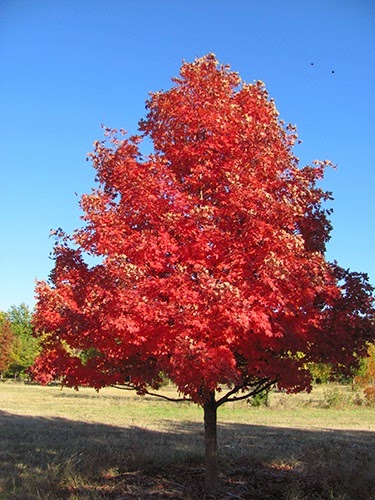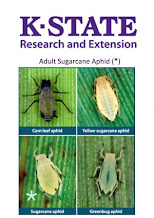The Importance of Wheat to Kansas and the World!
By Sandra L. Wick, Crop Production Agent
It won’t be long and combines and semi-trucks will be rolling on the roads and highways up here in north central Kansas. The 2020 Kansas wheat crop has certainly been through a pretty rough growing season with late planting and limited fall growth to freeze injury and dry conditions. But wheat is a pretty resilient crop and it can only deal with so much of these type of growing conditions!
We will see how the 2020 wheat yields are reported soon, but do you know where the Kansas wheat crop goes once it leaves the field? That is a great question, and most people don’t realize just how many other states and countries depend on our Kansas wheat crop!
On average, Kansas is the largest wheat producing state with nearly one-fifth of all wheat grown in the United States coming from Kansas. This is why it is called the “Wheat State” and “Breadbasket of the World.” Kansas has about 60,000 farmers with about 20,000 of those that grow wheat!
Annual average wheat production in Kansas for the past five years has been about 328 million bushels harvested from an average of 8.5 million acres. According to “Kansas Wheat”, the 2020 wheat crop is estimated to come in at 284.4 million bushels, 7% lower than the May 12 USDA estimate of 306 million bushels and down 16% from last year’s (2019) production of 338 million bushels. This estimate was released on May 21, after yield calculations were made in hundreds of fields across the state by crop scouts, including extension agents, agronomists and farmers. This estimate was a snapshot in time of the potential of the crop and if weather conditions are favorable for the wheat crop for the reminder of the season.
Crop scouts stopped in wheat fields across the state over three days and calculated potential yields using a history-based formula provided by USDA National Agricultural Statistics Service. This formula has traditionally been used by the Wheat Quality Council’s Hard Red Winter Wheat Tour, which is held each year during the first week of May. This year’s tour was cancelled due to the COVID-19 pandemic, so a virtual tour was held the week of May 18 by Kansas Wheat and Kansas State University Research & Extension, with support from the Kansas Department of Agriculture. Day 1 covered North Central and Northwest Kansas. The north central district has been plagued by spring drought. Stripe rust was also becoming more prevalent, and barley yellow dwarf was found. The spring freeze also had a large effect on the crop in the area. The average yield for north central Kansas was estimated at 41.1 bushels per acre.
All the wheat grown in Kansas in a single year would fit in a train stretching from western Kansas to the Atlantic Ocean and Kansas stores more wheat than any other state. On average, Kansas ranks number one in wheat and wheat products exported. Half of the wheat grown in Kansas is used in the United States; the other half is exported.
We will see how the 2020 wheat yields are reported soon, but do you know where the Kansas wheat crop goes once it leaves the field? That is a great question, and most people don’t realize just how many other states and countries depend on our Kansas wheat crop!
On average, Kansas is the largest wheat producing state with nearly one-fifth of all wheat grown in the United States coming from Kansas. This is why it is called the “Wheat State” and “Breadbasket of the World.” Kansas has about 60,000 farmers with about 20,000 of those that grow wheat!
Annual average wheat production in Kansas for the past five years has been about 328 million bushels harvested from an average of 8.5 million acres. According to “Kansas Wheat”, the 2020 wheat crop is estimated to come in at 284.4 million bushels, 7% lower than the May 12 USDA estimate of 306 million bushels and down 16% from last year’s (2019) production of 338 million bushels. This estimate was released on May 21, after yield calculations were made in hundreds of fields across the state by crop scouts, including extension agents, agronomists and farmers. This estimate was a snapshot in time of the potential of the crop and if weather conditions are favorable for the wheat crop for the reminder of the season.
Crop scouts stopped in wheat fields across the state over three days and calculated potential yields using a history-based formula provided by USDA National Agricultural Statistics Service. This formula has traditionally been used by the Wheat Quality Council’s Hard Red Winter Wheat Tour, which is held each year during the first week of May. This year’s tour was cancelled due to the COVID-19 pandemic, so a virtual tour was held the week of May 18 by Kansas Wheat and Kansas State University Research & Extension, with support from the Kansas Department of Agriculture. Day 1 covered North Central and Northwest Kansas. The north central district has been plagued by spring drought. Stripe rust was also becoming more prevalent, and barley yellow dwarf was found. The spring freeze also had a large effect on the crop in the area. The average yield for north central Kansas was estimated at 41.1 bushels per acre.
All the wheat grown in Kansas in a single year would fit in a train stretching from western Kansas to the Atlantic Ocean and Kansas stores more wheat than any other state. On average, Kansas ranks number one in wheat and wheat products exported. Half of the wheat grown in Kansas is used in the United States; the other half is exported.
As you all know, wheat is used for many kinds of foods such as breads, cookies, cakes, pies, pastries, cereals, crackers, pasta, flour tortillas and Oriental noodles. But did you know that one 60-pound bushel of wheat provides about 42 pounds of white flour, enough for about 70, one-pound loaves of white bread and each American consumes about 134 pounds of wheat flour per year. Stay tuned to my Post Rock Extension District Crop page (https://www.postrock.k-state.edu/crops/test-plots/) for the yield reports from our four Wheat Demonstration wheat plots. All four plots are scheduled to be harvested and the yield reports will be posted for each of the locations. We also taped and recorded our first-ever “Post Rock Extension District Virtual Wheat Tour” that is also posted in this location. Be sure and grab some popcorn and your favorite drink to learn about the “new” and “traditional” wheat varieties from 2020 and what to think about for your varieties for your 2021 wheat crop.
We hope you have a successful and more importantly SAFE 2020 Wheat harvest!
Post Rock Extension District of K-State Research and Extension serves Jewell, Lincoln, Mitchell, Osborne, and Smith counties. Sandra may be contacted at swick@ksu.edu or by calling Smith Center, 282-6823, Beloit 738-3597, Lincoln 524-4432, Mankato 378-3174, or Osborne 346-2521. Join us on Facebook at “Post Rock Extension” along with our blog site at “postrockextension.blogspot.com. Also remember our website is www.postrock.ksu.edu and my twitter account is @PRDcrops.
Post Rock Extension District of K-State Research and Extension serves Jewell, Lincoln, Mitchell, Osborne, and Smith counties. Sandra may be contacted at swick@ksu.edu or by calling Smith Center, 282-6823, Beloit 738-3597, Lincoln 524-4432, Mankato 378-3174, or Osborne 346-2521. Join us on Facebook at “Post Rock Extension” along with our blog site at “postrockextension.blogspot.com. Also remember our website is www.postrock.ksu.edu and my twitter account is @PRDcrops.













